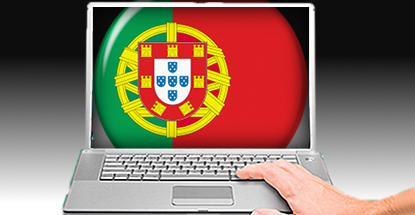 As promised earlier this week, Portugal has pushed forward with plans to launch a regulated online gambling market. On Thursday, the Council of Ministers approved a proposal that would allow legislators to craft a legal framework in which to license online casino, poker and sports betting. According to Secretary of State for Tourism Adolfo Mesquita Nunes, the new scheme should go into effect by the end of this year, pending approval by the national Assembly before the end of the current legislative session.
As promised earlier this week, Portugal has pushed forward with plans to launch a regulated online gambling market. On Thursday, the Council of Ministers approved a proposal that would allow legislators to craft a legal framework in which to license online casino, poker and sports betting. According to Secretary of State for Tourism Adolfo Mesquita Nunes, the new scheme should go into effect by the end of this year, pending approval by the national Assembly before the end of the current legislative session.
Santa Casa da Misericordia, the country’s current gambling monopoly, will be granted exclusive rights to social gaming and will retain its land-based betting monopoly. Other that that, Santa Casa will have to learn to compete online, as the proposal envisions an “open regime … without any concession of exclusivity.”
That is, provided international operators are willing to ante up taxes of between 15% and 30% of gross revenue for ‘games of chance’. For sports betting and horseracing, the tax is slated to land somewhere between 8% and 16%. These figures are subject to change, but clearly, the tormented wails of overtaxed operators from across the border in Spain have had little effect on Portugal’s gambling brain trust.
The newly licensed operators will be under the thumb of the Tourism Ministry’s Inspecção-Geral de Jogos (IGJ). The new regime also envisions new enforcement mechanisms to bring the smackdown on operators who continue to serve Portuguese punters from anything other than a licensed dot-pt domain.
Jorge Armindo, president of the Portuguese Casino Association, said his group was still considering the impact of the proposal. Armindo told Lusa it was high time online gambling was brought in from the cold, but “the means chosen may not have been the most appropriate.” Armindo said his group’s position “has always rested on the right of concession holders to exclusivity in online gaming … in alignment with the concession that was attributed to us in 2001 and for which we paid many millions of euros.”






